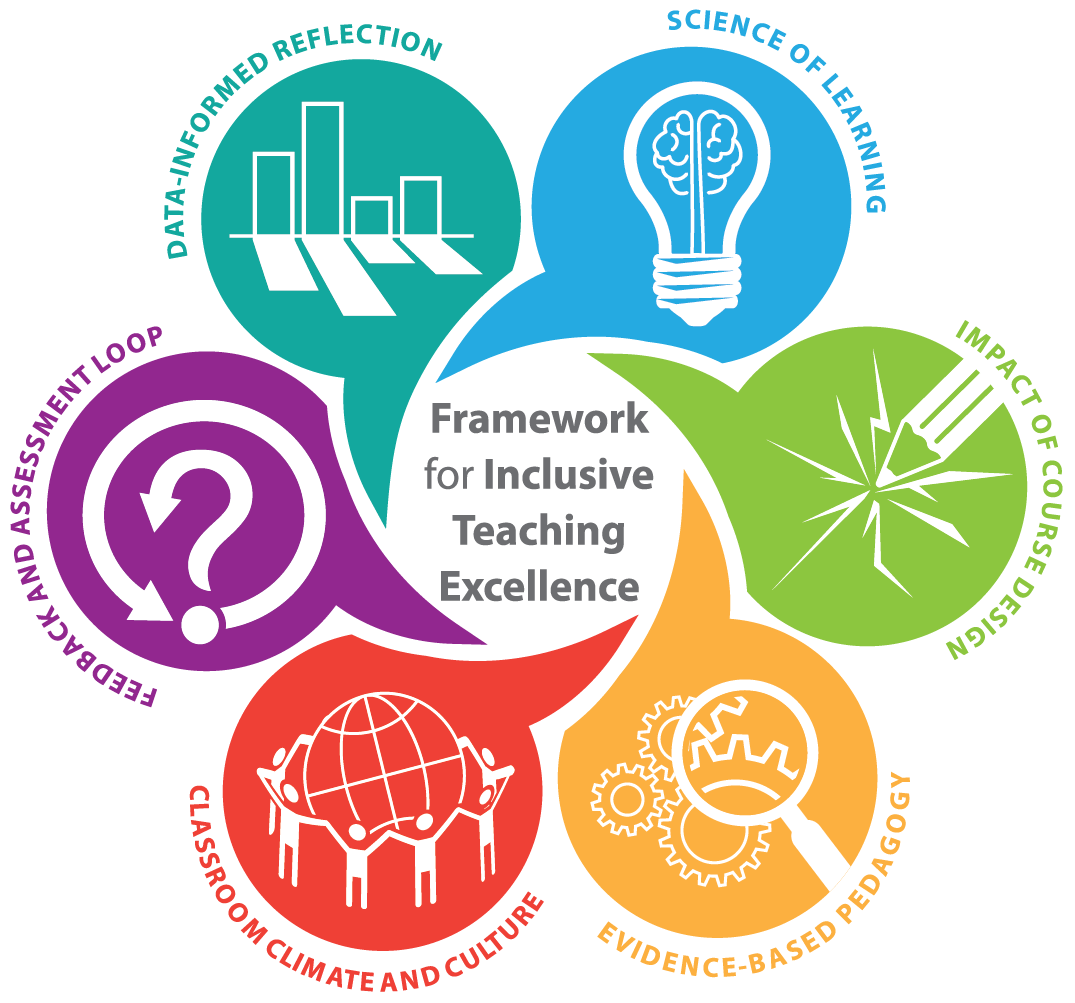Framework for Inclusive Support and Service Excellence

The Framework for Inclusive Support and Service Excellence (FISSE) was developed to help plan and organize professional development (PD) for staff in Academic Affairs with an equity, diversity, and inclusion lens. FISSE is parallel to the Framework for Inclusive Teaching Excellence (FITE) which maps the vision for PD for faculty in Academic Affairs. FISSE dimensions represent critical considerations for professional development in support of student success. Each aims to address ways in which all staff, regardless of their role, can create practical and applicable action plans at the individual and unit level which will result in high-quality, high-impact experiences and processes that are accessible to and inclusive of all Redbirds in their journey from recruitment through graduation and beyond. Each of the six dimensions are introduced and briefly described below:
-
Service and Support
Thinking bigger than traditional "customer service," striving for excellence in the delivery of high impact practices to assist and engage students and their families throughout their journey from recruitment through graduation and beyond.
-
Impact of Outreach and Programming
Accessible and equity minded practices are vital in the development and implementation of programs and services. Purposeful and strategic support of learning and growth are provided in and outside the classroom.
-
Leadership and Monitoring
As leaders and role models for students, intentional and inclusive practices are key to mentoring, advising, coaching, and serving students. Personal and professional growth is encouraged as knowledge and skills related to student development and success will support mission and goals.
-
Collaboration and Teamwork
Service should align with university values, vision, and goals. Creation of strong inclusive teams and campus partnerships will boost productivity, creativity, and support students' best interests and success.
-
Climate and Culture
Campus climate is reflected in the physical, social, and emotional spaces where students learn and grow. Appreciation and understanding of differences allow staff to foster a positive climate through the intentional development of a supportive culture for all students through the application of practices that support and encourage student engagement, development, and success.
-
Feedback Assessment and Data-Informed Reflection
A variety of assessments should be employed to understand students' individual and collective feedback and needs. A range of assessments offer the opportunity to hear the voice of the student and allow adjustments to be made to policies and procedures, outreach strategies, and services offered. Critical reflection requires the use of a variety of data to consider practices, biases, and awareness of students' needs.Ultimately, data-based reflection should inform continuous improvements to service.
-
The Development of the FISSE Framework
FISSE was developed by gathering and examining data from a survey administered in 2019 by the Professional Development Task Force led by Dr. Cuenca-Carlino that sought to assess staffs’ knowledge, self-efficacy, and current practices regarding inclusive and culturally responsive practices and services. The survey also provided a needs assessment regarding PD programming, including motivators for and barriers to staff’s participation in PD.
With the support of Dr. Cuenca-Carlino from the Office of the Provost, Associate Director of Enrollment Management Stacy Ramsey, and Coordinator of Orientation and Transition Services, Associate Director for Orientation and Training Services in University College, Corey Burgess spearheaded developing initial drafts of FISSE dimensions. They were later joined by the Director of the Graduate School, Dr. Noelle Selkow, and Director of the Speech and Hearing Clinic and Academic Advisor, Heidi Verticchio. Together, this team of individuals further gathered feedback through various meetings and an online form. Over 250 staff were provided the opportunity to provide input to fine-tune and finalize the FISSE framework, including staff in Enrollment Management and Academic Services (EMAS), the Academic Advising Council, and College of Arts and Sciences.